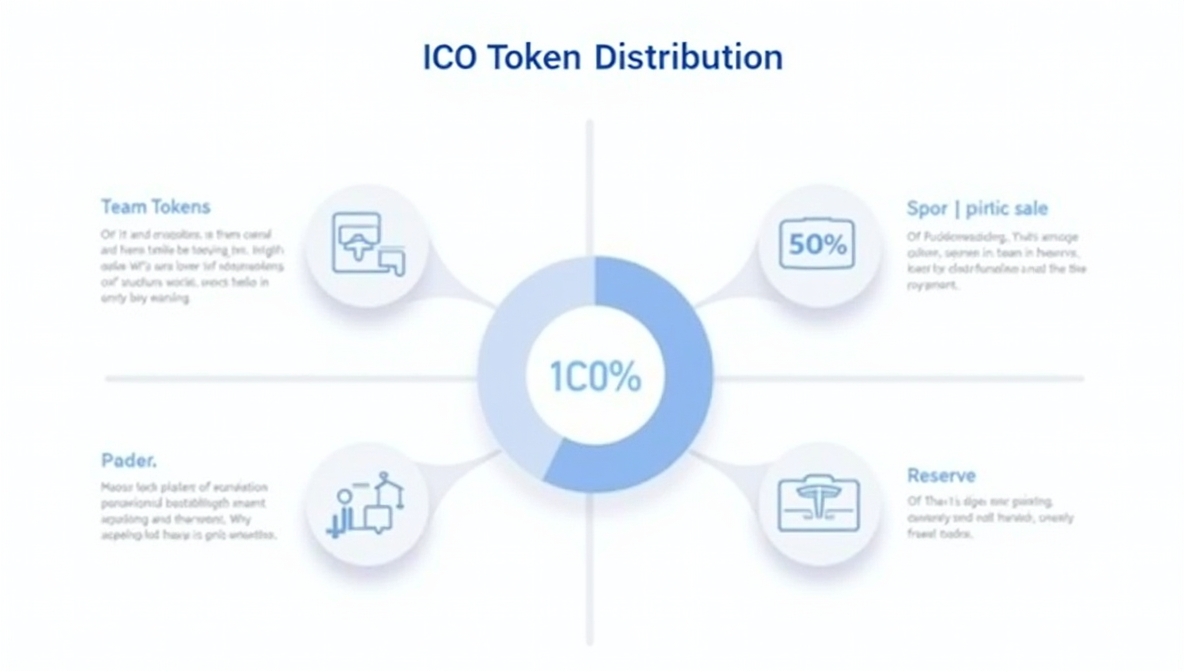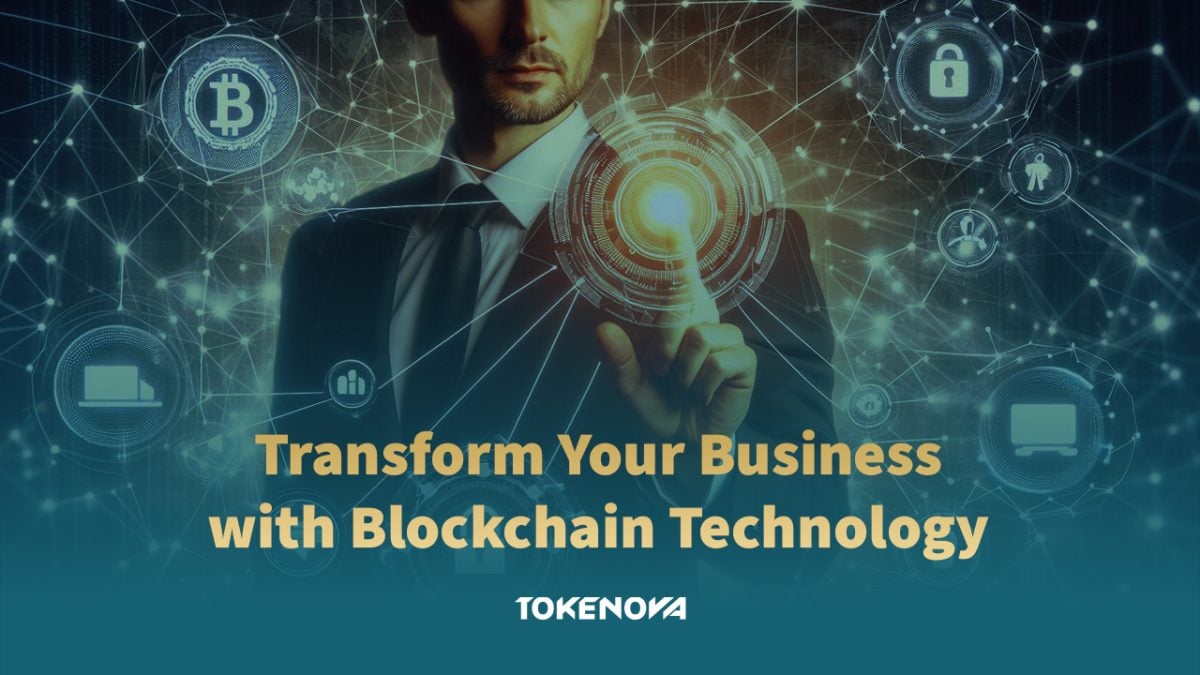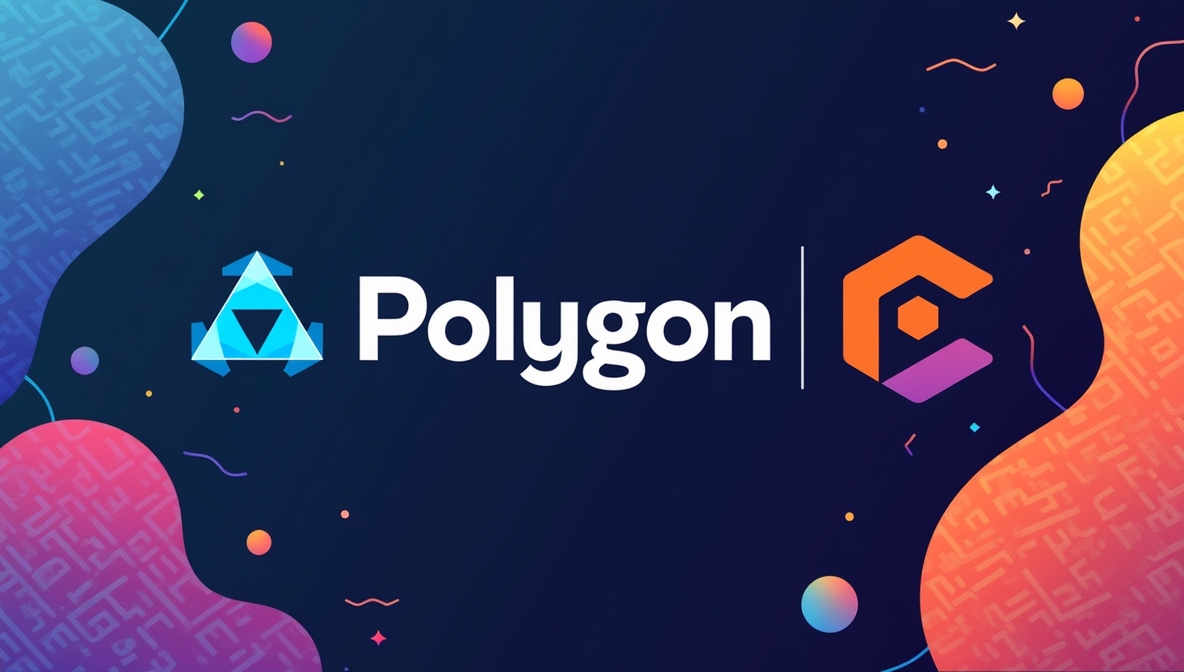Investments are evolving rapidly, and tokenization is opening doors to markets that were once reserved for the elite. Imagine owning a share in a rare vintage wine or a batch of artisanal olive oil without the need for vast amounts of capital or insider connections.
For producers of premium foods and beverages, tokenization offers a modern solution to age-old challenges like raising capital and reaching new markets. For investors, it provides an exciting opportunity to diversify portfolios, participate in exclusive markets, and potentially enjoy tax benefits all while contributing to the growth of sustainable and ethical practices.
This article explores how tokenization is revolutionizing the premium food industry, from making investments more inclusive to offering real-world examples of success. Whether you’re an investor looking to explore new opportunities or a producer seeking innovative ways to scale your business, this guide will help you understand the potential of tokenization and how to harness its advantages effectively.
Overview of Tokenization in Niche Markets
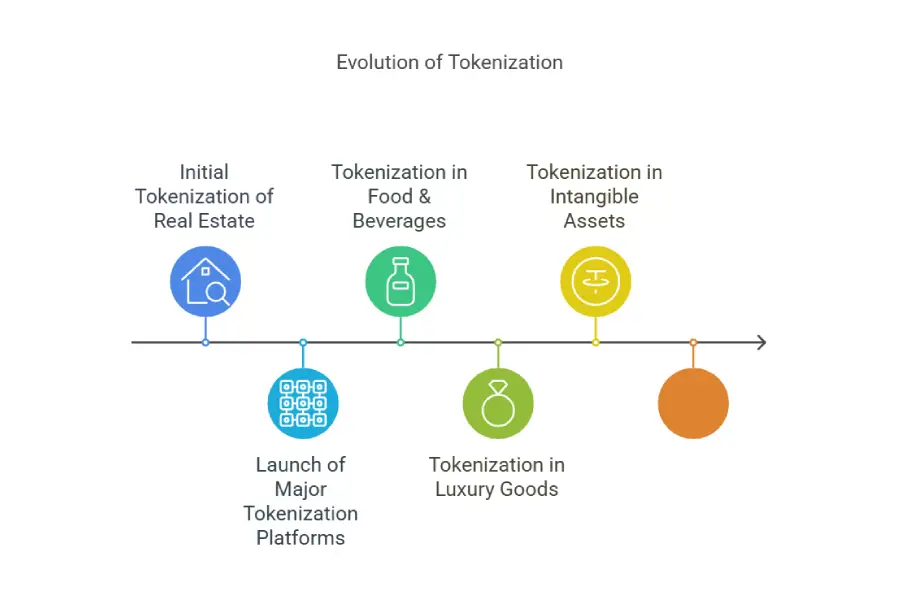
Tokenization is reshaping investment landscapes by converting ownership rights of tangible and intangible assets into digital tokens on a blockchain. Initially applied to traditional financial assets like real estate and stocks, this groundbreaking approach is now thriving in niche markets, including premium foods and beverages.
In 2023, the global tokenization market was valued at approximately $1.5 billion and is projected to grow to $8 billion by 2030, according to Market Research Future. This growth reflects the increasing interest in alternative assets and the desire for diversified investment portfolios. Sectors like premium foods and beverages are expected to play a pivotal role in driving this expansion, offering unique opportunities for fractional ownership and capital accessibility.
Premium Foods and Beverages: A Rising Tokenization Frontier
The premium foods and beverages sector is uniquely poised for tokenization. These products often hold intrinsic value, driven by factors like rarity, quality, and brand reputation. Tokenization allows fractional ownership, making it accessible to a wider pool of investors and enabling producers to raise capital more efficiently. This sector’s unique characteristics, such as long-term appreciation potential and global demand, make it an attractive candidate for blockchain-based investment strategies.
The global premium food market is experiencing significant growth, with various segments such as organic foods and beverages, premium chocolates, and functional foods contributing to this expansion. For instance, the global organic food and beverages market was valued at USD 231.52 billion in 2023 and is expected to grow at a compound annual growth rate (CAGR) of 13.9% from 2024 to 2030.
Similarly, the premium chocolate market was estimated at USD 31.87 billion in 2024, with a projected CAGR of 4.3% from 2025 to 2030.
Additionally, the functional foods market size was estimated at USD 280.7 billion in 2021 and is expected to expand at a CAGR of 8.5% from 2022 to 2030.
Also, consider this:
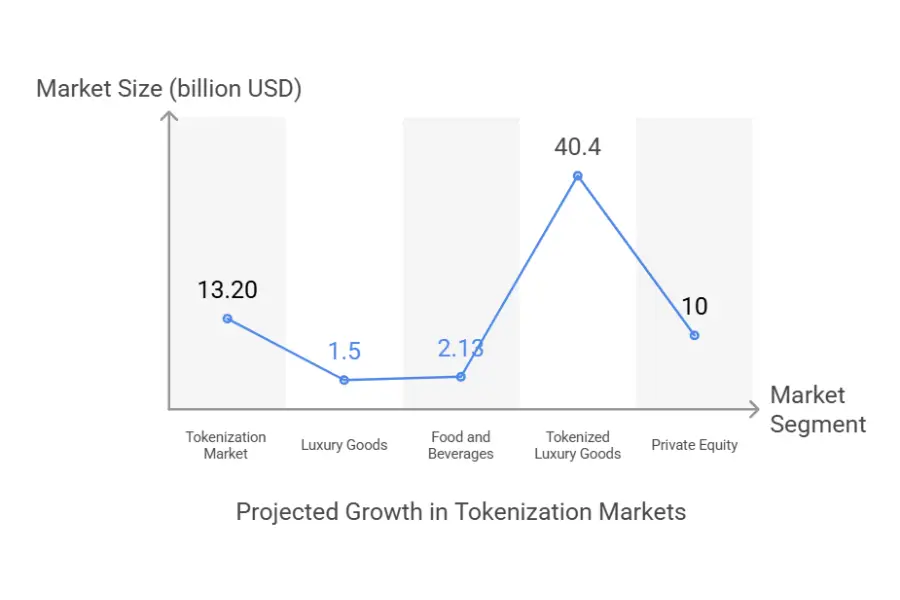
By leveraging blockchain technology, tokenization is poised to capture a significant share of this burgeoning market. The combination of growing consumer demand for authenticity and innovative blockchain investment models positions this sector as a promising avenue for investors seeking diversification and producers aiming to raise capital efficiently.
Why This Article Matters
Tokenization is revolutionizing the way we invest in niche markets, including premium foods and beverages. This article seeks to uncover the various dimensions of this transformation, focusing on how tokenization is making high-value markets accessible, transparent, and efficient for a wider range of investors. Moreover, it delves into the intriguing interplay between tokenization and tax planning, offering insights into strategies that can legally minimize tax liabilities.
How Tokenization is Changing Investments in Premium Foods and Beverages
Traditionally, investing in premium foods and beverages like fine wines, aged cheeses, and artisanal oils has been limited to those with significant capital and insider knowledge. Tokenization is changing this by lowering the barriers to entry, offering benefits such as:
- Liquidity: Investors can trade tokenized assets more easily, turning traditionally illiquid items into flexible opportunities.
- Transparency: Blockchain technology ensures that ownership and provenance records are clear and tamper-proof, building trust in high-value markets.
- Accessibility: Fractional ownership allows everyday investors to participate in markets previously dominated by wealthier individuals or institutions.
Tokenization and Tax Planning: A New Era of Strategy
Beyond accessibility, tokenization introduces innovative ways to manage taxes legally and efficiently. Blockchain technology provides tools like anonymity, smart contracts, and jurisdictional flexibility, which investors can use to reduce tax liabilities:
- Privacy-Driven Planning: Blockchain’s pseudonymity enables discreet transactions that remain within legal bounds.
- Automated Tax Solutions: Smart contracts streamline tax-efficient income reporting or dividend distributions.
- Global Tax Advantages: Strategic use of jurisdictions with favorable tax laws can help investors minimize liabilities while complying with regulations.
This article explores these exciting shifts in the investment and tax planning landscape, offering real-world examples and practical insights to guide both seasoned investors and beginners. Let me know if you’d like to dive deeper into any part!
Understanding Tokenization in Premium Foods and Beverages
Tokenization is a modern way to represent ownership of physical or digital assets using blockchain technology. Imagine breaking down something as exclusive as a vintage wine collection into smaller, tradable shares each represented by a digital token. This process allows more people to participate in high-value markets by enabling fractional ownership, making assets easier to trade and increasing their liquidity.
For instance, there are two primary types of tokens that serve distinct purposes. Security tokens represent ownership in tangible assets, such as a collection of rare wines or premium olive oils. These tokens are carefully regulated to ensure investor protection and legal compliance. On the other hand, utility tokens are designed to provide access to services or experiences within a specific ecosystem. A utility token in the premium food space might give its holder exclusive perks, such as invitations to private tastings or discounts on future purchases.
How Does the Tokenization Process Work?
1️⃣The process of tokenization typically begins with selecting the asset to be tokenized. In the premium food and beverage sector, this might include anything from a boutique winery’s vintage collection to a batch of artisanal olive oil. Once the asset is chosen, its value is assessed to determine how many tokens can be issued. For instance, a $1 million vintage wine collection might be divided into 10,000 tokens, each worth $100.
2️⃣Next, smart contracts automated digital agreements are created to govern the rules for token issuance, ownership, and transactions. These contracts ensure everything runs smoothly and transparently, eliminating the need for intermediaries.
3️⃣After this, the tokens are offered to investors, often through platforms like security token offerings. Finally, the tokens are listed on digital asset exchanges, allowing investors to trade them freely, providing liquidity and flexibility.
One striking example comes from Napa Valley, where a renowned winery tokenized its exclusive vintage collection in 2023. By issuing 10,000 tokens, each representing a share in a specific bottle, the winery successfully raised $5 million. This not only allowed the winery to expand its operations but also gave investors a chance to own a stake in an appreciating asset.
Tokens Tailored for Food and Beverage Investments
In the premium food and beverage sector, the type of token matters. Security tokens, for example, are perfect for representing ownership in physical assets like fine wines or premium cheeses. These tokens follow strict regulatory guidelines, ensuring transparency and safety for investors. Alternatively, utility tokens are about creating experiences and access. They might provide token holders with special privileges like discounted products or invitations to exclusive events, adding an experiential layer to the investment.
Read More: Tokenization of Alternative Investments: Unlocking New Opportunities
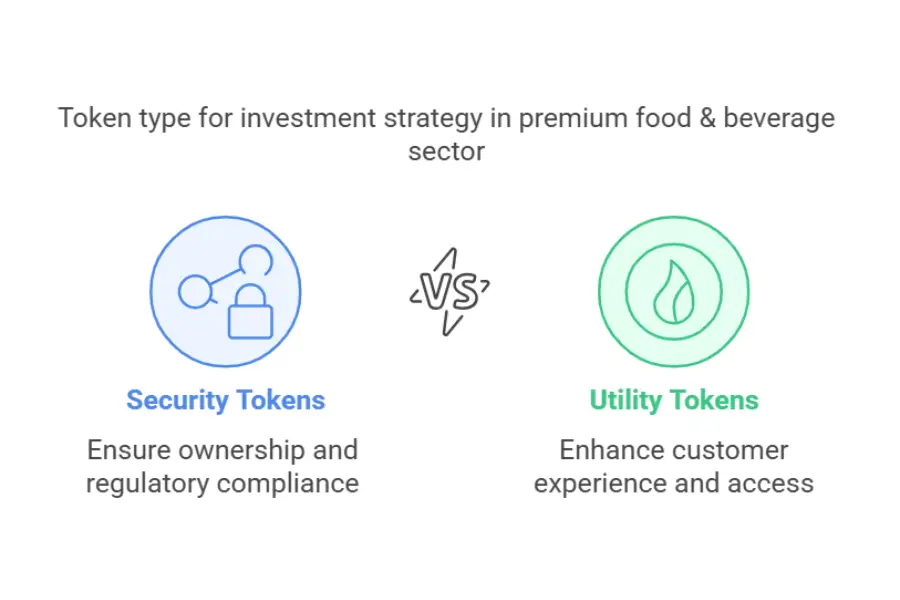
By blending these two approaches, tokenization is reshaping how we think about ownership and investment in premium consumables. It’s an exciting intersection of tradition and technology, making once-exclusive markets more inclusive than ever before.
Benefits of Tokenizing Premium Products
Tokenizing premium products like fine wines, artisanal cheeses, or extra-virgin olive oils is transforming how people invest. By turning high-value assets into smaller, tradable units, tokenization offers benefits that are both practical and revolutionary, making these markets more accessible and dynamic.
Making Premium Assets More Liquid
One of the most significant advantages of tokenization is enhanced liquidity. Tokenization allows assets to be divided into smaller, tradable units. For example, instead of buying an entire barrel of fine wine, investors can purchase fractional shares in it, making it easier to trade without disrupting market prices.
This approach is not just theoretical. A 2023 Deloitte report highlights that over 50% of asset managers and nearly 30% of asset servicers plan to launch tokenized assets within the next year, indicating a significant industry shift towards tokenization. This trend is expected to enhance asset liquidity, making it easier for investors to enter or exit positions with minimal price impact. This development is particularly valuable in markets traditionally dominated by long-term holding strategies or private transactions.
Building Trust Through Transparency
Blockchain technology adds another layer of value by ensuring complete transparency and traceability. Every transaction is recorded immutably, creating a reliable history of ownership and provenance. This is especially important for premium food products, where authenticity and quality are critical.
Take, for instance, a Parmesan cheese producer. By tokenizing their product, they can allow consumers and investors to trace the cheese’s journey from farm to table. This not only reduces the risk of fraud but also strengthens consumer trust in the product’s authenticity. Blockchain’s ability to provide verifiable records creates a level of confidence that is hard to achieve through traditional means.
Making Investment Accessible to All
Perhaps the most exciting benefit of tokenization is how it democratizes access to high-value markets. Traditionally, investing in premium products required significant wealth, making these opportunities available only to institutions or affluent individuals. With tokenization, entry barriers are lowered, enabling more people to participate.
A 2022 survey commissioned by BNY Mellon revealed that 91% of institutional investors are interested in investing in tokenized products, with 97% believing that tokenization could revolutionize asset management.
This growing institutional interest suggests a broader trend toward tokenized investments, which could lead to increased market activity and a more dynamic, inclusive investment ecosystem.
Through liquidity, transparency, and accessibility, tokenization is reshaping how people think about owning and investing in premium products. It’s a shift that blends tradition with cutting-edge technology, making high-value assets a part of everyday investment strategies.
Read More: what assets can be tokenized
Advantages of Tokenizing Premium Products for Producers
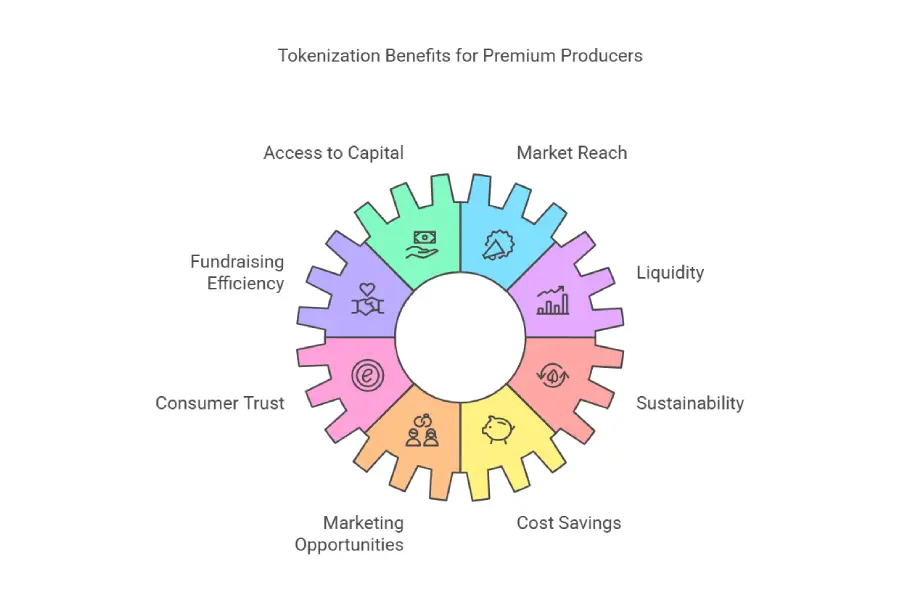
Tokenization offers a transformative opportunity for producers in the premium food and beverage industry. By leveraging blockchain technology, producers can turn their high-value products into digital tokens, allowing them to raise capital, improve operations, and connect with a global audience in ways that were previously unavailable. Here’s how tokenization benefits producers directly.
1. Access to Capital Without Sacrificing Ownership
For producers, one of the biggest hurdles is funding growth without losing control of their business. Tokenization offers an innovative solution. By tokenizing their assets whether it’s a vintage wine collection or an artisanal olive oil harvest producers can raise capital by selling fractional ownership of their products instead of equity in their company.
This method allows them to maintain full control over their operations while still accessing the funds needed for expansion, equipment upgrades, or marketing initiatives. Unlike traditional financing methods, tokenization doesn’t require loans or debt repayment, providing a flexible and sustainable way to grow.
2. Expanding Market Reach
Tokenization removes geographical barriers, enabling producers to connect with investors and customers worldwide. Small-scale producers in rural areas, such as a balsamic vinegar maker in Modena or a family-owned vineyard in Bordeaux, can now reach a global audience through blockchain platforms.
This global exposure doesn’t just boost investment opportunities; it also enhances the visibility of the brand and creates new distribution channels. Producers can use tokenization as a marketing tool to showcase their unique products to a diverse and international customer base.
3. Efficient and Transparent Fundraising
Raising funds through tokenization is often faster, more cost-effective, and more transparent than traditional methods. Tokenization allows producers to create digital tokens tied to their products, which can then be sold to investors directly through blockchain platforms.
Blockchain technology ensures every transaction is recorded immutably, reducing the risk of fraud and providing investors with a clear and transparent understanding of the producer’s operations. This transparency builds trust with investors and strengthens the producer’s reputation in the market.
4. Enhanced Liquidity for High-Value Products
Producers of premium foods and beverages often face liquidity challenges. Products like fine wines, artisanal cheeses, and olive oils are valuable but traditionally illiquid assets they require significant time and effort to sell.
Tokenization changes this dynamic by creating tradable digital tokens that represent fractional ownership of these products. These tokens can be bought, sold, or traded on blockchain platforms, making it easier for producers to monetize their inventory and for investors to access liquidity.
5. Strengthened Consumer Trust Through Transparency
Blockchain technology’s ability to provide verifiable records of product origin, quality, and authenticity is a game-changer for producers. By tokenizing their products, producers can offer customers and investors a clear view of the product’s journey from production to delivery.
For instance, a tokenized wheel of Parmesan cheese can include a blockchain record detailing its farm of origin, aging process, and storage conditions. This transparency not only reduces fraud but also builds consumer trust and strengthens the producer’s brand reputation.
6. Supporting Sustainability and Ethical Practices
Tokenization offers a unique way for producers to showcase their commitment to sustainability and ethical practices. By linking tokens to environmentally friendly initiatives, such as carbon-neutral production or fair trade certifications, producers can attract socially conscious investors and consumers.
For example, an olive oil producer committed to regenerative farming can tokenize their harvest, ensuring every token represents a share in a sustainable and ethical product. Blockchain’s traceability ensures these claims are verifiable, creating accountability and aligning investment with values.
7. Unlocking New Marketing Opportunities
Tokenization opens the door to innovative marketing strategies that directly engage consumers. Producers can tie token ownership to exclusive perks, such as invitations to private tastings, behind-the-scenes farm tours, or early access to limited-edition products.
These personalized experiences create a deeper connection between the producer and the consumer, fostering loyalty and building a strong emotional link to the brand. For small producers, this can be a powerful tool to stand out in competitive markets.
8. Cost Savings Through Efficiency
The blockchain infrastructure used in tokenization eliminates the need for intermediaries in the investment and sales process, reducing costs for producers. Traditional methods of raising capital or distributing products often involve multiple middlemen, each taking a cut.
Tokenization streamlines these processes, allowing producers to work directly with investors and consumers. This efficiency not only saves money but also ensures that more of the product’s value stays with the producer.
9. Long-Term Brand Value Growth
By tokenizing their products, producers position themselves as forward-thinking, innovative brands. This can boost their appeal not only to investors but also to a new generation of tech-savvy, socially conscious consumers.
The transparency, accessibility, and ethical considerations tied to tokenized assets create a sense of long-term value, helping producers build a loyal customer base and a strong market presence over time.
Tokenization is more than a trend it’s a powerful tool for producers in the premium food and beverage industry to grow their businesses, enhance transparency, and reach global audiences. By providing access to capital without giving up ownership, improving liquidity, and creating opportunities for sustainable and ethical practices, tokenization offers producers the chance to thrive in a competitive market.
💡As more producers embrace this innovative approach, the premium food and beverage industry is set to become more inclusive, efficient, and consumer-focused than ever before.
Exploring Investment Opportunities in Tokenized Premium Foods and Beverages
Tokenization is revolutionizing how premium foods and beverages are bought, sold, and invested in. By breaking high-value assets like vintage wines, artisanal olive oils, and aged cheeses into digital tokens, it offers new ways for individuals to participate in markets that were traditionally reserved for affluent collectors or large institutions. This shift doesn’t just make these markets more accessible it also introduces efficiencies that benefit both investors and producers. Whether it’s providing small-scale investors with an entry point into high-end markets or enabling producers to raise capital with transparency, tokenization is reshaping the dynamics of this sector.
The Growing Appeal of Wine Tokenization
Investing in fine wine has long been seen as a smart way to diversify portfolios, with prices steadily appreciating over time. According to the Liv-ex Fine Wine 100 index, fine wine prices have increased by an average of 6% annually over the past decade. This consistent growth has positioned the wine investment market as a lucrative opportunity, with its value estimated at $13 billion in 2023 and projected to reach $20 billion by 2030.
Tokenization is making this once-exclusive market accessible to a broader audience. By dividing expensive wine collections into affordable digital tokens, even small and medium investors can now participate. For instance, a boutique winery in Bordeaux tokenized its reserve wines, enabling investors to purchase shares of individual bottles. This initiative raised $2 million, which the winery used to expand its vineyards and boost production. Meanwhile, investors saw the potential for returns as the wines appreciated in value, making this a win-win scenario.
Olive Oil: A New Frontier in Tokenized Investments
Premium olive oil, renowned for its health benefits and superior quality, presents a compelling opportunity for tokenization. The global olive oil market was valued at approximately USD 22.30 billion in 2022 and is projected to reach USD 33.12 billion by 2030, growing at a compound annual growth rate (CAGR) of 5.2% from 2023 to 2030.
While specific instances of Tuscan olive oil producers issuing tokens to represent shares in their harvests are not readily available, the concept of utilizing blockchain technology for traceability and authenticity in the olive oil industry is gaining traction. For example, CHO, a Tunisian olive oil producer, has joined the IBM Food Trust blockchain network to provide consumers with detailed provenance information, enhancing transparency and trust.
Implementing such technologies allows producers to raise capital and offer investors a stake in a stable and growing market. By ensuring product authenticity and quality through blockchain, producers can command premium prices, leading to increased revenues and the potential for expansion. As the brand gains recognition for its commitment to transparency and quality, the value of associated investments may be appreciated, offering meaningful returns for investors while supporting sustainable growth for the producer.
The Niche Potential of Parmesan Cheese and Balsamic Vinegar
Artisanal products like Parmesan cheese and aged balsamic vinegar hold exceptional value due to their limited production and unique qualities. For instance, the artisanal bakery products market alone was valued at approximately USD 95.13 billion in 2022 and is anticipated to expand at a compound annual growth rate (CAGR) of 5.7% from 2023 to 2030.
This growth reflects a broader consumer shift towards authentic, high-quality, and locally sourced foods, making the artisanal food market an attractive avenue for innovative investment strategies like tokenization.
Parmigiano Reggiano’s Blockchain Initiative
The Parmigiano Reggiano Consortium has collaborated with p-Chip Corporation and Kaasmerk Matec to integrate blockchain-enabled microchips into their cheese wheels. These edible microchips, embedded in the casein labels, create a digital “twin” for each wheel, allowing for precise tracking from production to consumer. This system enhances traceability and assures consumers of the product’s authenticity.
Balsamic Vinegar of Modena’s Digital Passport
Similarly, the Consortium for Balsamic Vinegar of Modena has introduced a Digital Passport in collaboration with the Italian State Mint and Polygraphic Institute, the Qualivita Foundation, and CSQA certifications. This agri-food traceability system utilizes blockchain technology to certify the originality and traceability of each bottle, involving consumers in protecting the authentic product.
These initiatives demonstrate how traditional producers are leveraging blockchain technology to enhance transparency, protect their brands, and build consumer trust. While these efforts focus on traceability and authenticity, they lay the groundwork for potential future applications, such as tokenization, to raise capital and engage investors.
Why Tokenization Works for Premium Products
By blending traditional craftsmanship with modern technology, tokenization transforms how we approach investment in premium foods and beverages. From fine wines to artisanal olive oils and cheeses, the process not only democratizes access but also supports sustainable growth for producers while offering compelling returns for investors. This innovative approach ensures that everyone, from small-scale investors to seasoned connoisseurs, can partake in the success of these high-value markets.
Tokenization in Action: Stories from the World of Premium Foods
Tokenization has already begun to reshape the premium food and beverage industry, and the results are nothing short of transformative. Whether it’s a Napa Valley winery using blockchain to connect with new investors or a Tuscan olive oil producer expanding their groves with the help of fractional ownership, real-world examples illustrate how this technology is breaking down barriers and creating new opportunities.
The Napa Valley Winery That Turned Fine Wine into Digital Shares
In 2023, a well-known winery in Napa Valley faced a challenge that many boutique producers encounter: how to fund growth without giving up creative or operational control. The solution came in the form of blockchain tokenization. Instead of turning to traditional financing methods, the winery decided to tokenize part of its exclusive vintage collection.
By issuing 10,000 digital tokens, each representing a fractional share in individual bottles of wine, the winery was able to raise $5 million. This approach not only allowed the business to expand its vineyards and upgrade facilities, but it also gave investors an entirely new way to engage with the wine industry. Each token holder essentially owned a piece of the wine’s future value, which could be sold or held as the wine aged and appreciated. The success of this initiative has since inspired other wineries to explore tokenization as a way to raise capital and build stronger relationships with a global network of investors.
Tuscan Olive Oil: Growing Groves Through Blockchain
The world’s finest olive oils often come from Tuscany, but even artisanal producers face barriers when it comes to funding growth. One family-run olive oil business decided to tokenize its upcoming harvest. Investors could purchase digital tokens representing shares in specific batches of olive oil, providing much-needed capital for the producer.
With the funds raised, the business expanded its olive groves and upgraded its pressing equipment, resulting in a 15% increase in production capacity. Meanwhile, investors saw the value of their tokens rise as the olive oil gained international recognition. By blending tradition with modern investment strategies, the producer not only secured its financial future but also brought premium olive oil to a broader audience.
Preserving Heritage with Tokenized Balsamic Vinegar
In 2019, the Balsamic Vinegar of Modena PGI became the first Italian Geographical Indication to test a Digital Passport a traceability system developed in collaboration with the Italian State Mint and Polygraphic Institute, the Qualivita Foundation, and CSQA Certifications. This system integrates anti-counterfeiting measures and certified data through blockchain technology, ensuring the originality and traceability of each bottle. Consumers can verify product authenticity, fostering trust and protecting the cultural heritage of Modena’s famed vinegar industry.
Ortalli’s Blockchain Traceability
Ortalli, a company producing top-quality balsamic vinegars since 1899, has implemented blockchain traceability technology. This system allows consumers to follow each step of the product’s journey from the field to the bottle ensuring transparency and authenticity. By leveraging blockchain, Ortalli safeguards its reputation and provides consumers with confidence in the product’s quality and origin.
What These Stories Teach Us
The case studies above highlight how tokenization can empower producers, attract new investors, and create more inclusive markets. Whether it’s a small farm in Parma or a high-end winery in Napa, the benefits are clear:
- Producers gain access to capital without giving up control.
- Investors can participate in markets that were previously out of reach.
- Blockchain technology provides transparency, trust, and traceability.
As these examples show, tokenization isn’t just a technological trend it’s a practical solution to real-world challenges. Whether you’re a producer looking to expand or an investor seeking new opportunities, the future of tokenized premium foods is full of potential.
Challenges and Considerations in Premium Food Tokenization
Tokenization in the premium food and beverage industry has opened the doors to exciting investment opportunities, but it’s not without its hurdles. From navigating complex regulations to addressing market adoption and security risks, there are critical challenges that producers, investors, and platforms need to tackle. Let’s explore these issues and what they mean for the future of tokenized premium foods.
Regulatory Hurdles: Walking a Legal Tightrope
One of the biggest obstacles in tokenizing premium assets is dealing with ever-changing regulations. Since laws governing digital assets vary from country to country, ensuring compliance can be complicated. For example, many tokens are treated as securities, which means they come under strict rules regarding issuance and trading. While these regulations protect investors, they can also create roadblocks for producers trying to tokenize their products.
Taxation is another gray area. Depending on the jurisdiction, tokenized assets might be taxed as property, income, or securities. Without clear guidelines, it’s easy for producers or investors to unknowingly step out of compliance. And when you add cross-border investments into the mix, things can get even messier.
To make matters worse, regulatory uncertainty can lead to hesitation among potential investors. People want to know their investments are secure and compliant, but the lack of consistent global standards often leaves them unsure about the risks they’re taking.
The Learning Curve: Adoption Takes Time
Tokenization is still a relatively new concept, and for many producers and investors, it feels like uncharted territory. Producers, especially smaller ones, may not have the technical know-how or resources to implement tokenization. Creating smart contracts, managing blockchain infrastructure, and navigating token sales often require outside help, which can be both costly and intimidating.
On the investor side, there’s often confusion about how tokenized assets work. Many retail investors are still unfamiliar with blockchain technology, and the perceived complexity of tokenization can make them hesitant to get involved. Bridging this gap requires significant effort in education and trust-building, which takes time.
Market Dynamics: Liquidity and Volatility
While one of the main promises of tokenization is increased liquidity, the market for tokenized assets is still growing. With fewer buyers and sellers compared to traditional markets, it can be challenging to trade tokens without significant price fluctuations. This lack of liquidity might discourage investors who are looking for stable and reliable opportunities.
Valuation is another tricky aspect. Unlike stocks or bonds, which have well-established metrics for determining value, the worth of tokenized assets like fine wine or artisanal olive oil can depend on subjective factors like quality, brand reputation, or market demand. Without consistent benchmarks, investors may find it hard to assess whether they’re getting a fair deal.
Security and Technology Risks
While blockchain technology is often praised for its transparency and security, it’s not immune to risks. Poorly coded smart contracts can leave investments vulnerable to hacks or errors. And let’s not forget about cybersecurity threats tokenized platforms are attractive targets for hackers, which means robust security measures are non-negotiable.
Another challenge is scalability. As more producers embrace tokenization, blockchain networks could face issues like slower transaction speeds or higher processing costs. For tokenization to thrive, these technical hurdles will need to be addressed.
Ethical Concerns: Balancing Growth and Sustainability
Tokenizing premium foods also raises ethical questions. For example, producers might feel pressured to scale up operations quickly to meet investor expectations, potentially leading to overproduction or unsustainable practices. This could compromise the quality and authenticity that made their products valuable in the first place.
Maintaining a balance between growth and sustainability is critical. Producers need to ensure that their expansion plans align with their values and long-term goals, rather than simply chasing short-term profits.
Overcoming the Challenges
Despite these challenges, the potential of tokenization remains immense. Solutions are emerging, and the industry is learning how to address these issues head-on. Producers and investors can take several practical steps to navigate this space:
- Seek Expert Guidance: Partnering with blockchain specialists, legal advisors, and tax professionals can help navigate the technical and regulatory complexities of tokenization.
- Choose Reliable Platforms: Working with trusted tokenization platforms ensures better security and compliance, reducing risks for both producers and investors.
- Educate the Market: Providing clear, accessible information about how tokenization works can help build confidence and attract more participants.
Looking Ahead
Tokenization in premium foods and beverages holds enormous potential, but it’s not a plug-and-play solution. The path forward requires collaboration between regulators, producers, and investors to create a secure and sustainable ecosystem. With thoughtful strategies and a willingness to learn, tokenization can continue to transform the industry, making high-value assets accessible to a broader audience while preserving the integrity of premium products.
As this space evolves, the key will be balancing innovation with responsibility ensuring that tokenization delivers on its promises without losing sight of the values that make these products special.
Future Trends in Tokenization of Premium Foods
The tokenization of premium foods and beverages is still in its early stages, but the future holds immense potential for innovation and growth. From advancements in blockchain technology to expanding consumer and investor interest, the next few years are poised to transform how we think about ownership and investment in this sector. Here’s a look at the trends shaping the future of tokenized premium foods.
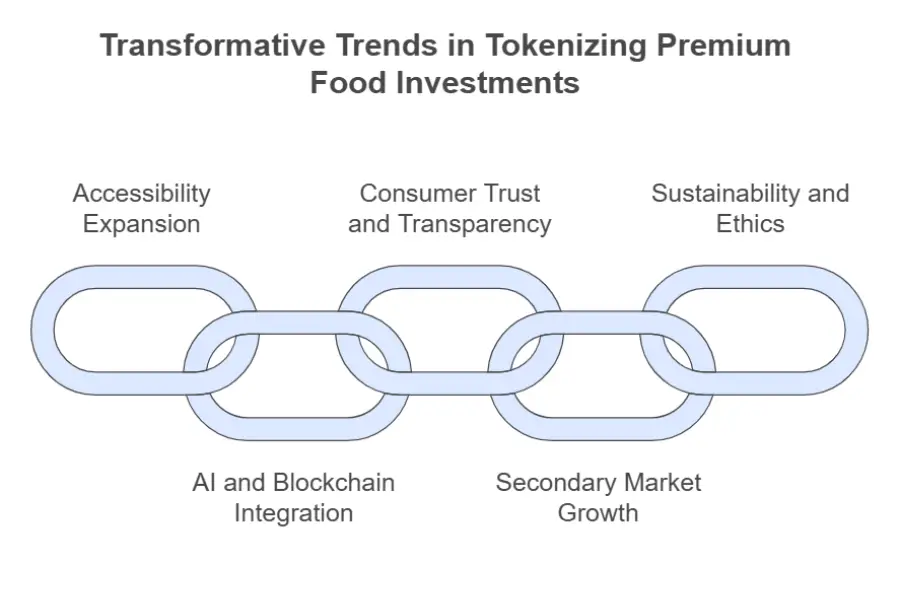
Expanding Accessibility and Democratization
One of the most exciting aspects of tokenization is its ability to make high-value assets accessible to a broader audience. In the future, we can expect tokenized investments to go beyond luxury products like fine wines and artisanal olive oils, encompassing a wider range of premium consumables, such as organic produce, rare spices, and exotic coffees.
This expansion will be driven by a growing demand for fractional ownership. People who may not have previously considered investing in high-end food products will have the opportunity to own shares in these markets, breaking down financial barriers and attracting a more diverse pool of investors.
Integration of Artificial Intelligence and Blockchain
The combination of artificial intelligence (AI) and blockchain technology is set to revolutionize how tokenized assets are managed and tracked. AI can analyze market trends, predict product valuations, and assess risks, helping investors make smarter decisions.
For instance, AI could help predict the future value of a vintage wine based on historical trends, current market conditions, and even weather patterns affecting grape harvests. When integrated with blockchain’s transparent record-keeping, these insights will create a more reliable and efficient investment ecosystem for premium foods.
Enhanced Consumer Trust Through Transparency
As blockchain technology evolves, the ability to provide consumers with detailed, verifiable information about the origins and production processes of premium foods will become even more sophisticated. This will further strengthen trust in tokenized products.
Imagine being able to scan a QR code on a tokenized wheel of Parmesan cheese and instantly accessing its complete history from the farm it came from to the aging process it underwent. This level of transparency will appeal to increasingly conscious consumers who value authenticity and ethical production.
Growth of Secondary Markets
One current limitation in tokenized food investments is the lack of active secondary markets where investors can easily buy and sell their tokens. In the future, the development of dedicated platforms and exchanges for tokenized premium foods is expected to solve this problem.
With more robust secondary markets, liquidity will improve, allowing investors to enter and exit positions more freely. This will make tokenized assets more attractive, especially to those who value flexibility and short-term investment opportunities.
Focus on Sustainability and Ethical Practices
As sustainability becomes a top priority for consumers and investors, tokenization will play a key role in promoting environmentally responsible practices in the food industry. By tokenizing assets tied to sustainable farms or fair-trade products, producers can directly link investment value to ethical practices.
For example, tokenized olive oil from a carbon-neutral farm or wine produced using biodynamic methods could become highly sought after, with blockchain technology verifying the environmental credentials of these products. This trend will align the goals of sustainability-conscious investors with those of producers committed to ethical practices.
Broader Regulatory Frameworks
The rapid growth of tokenized assets will push governments and regulatory bodies to establish clearer guidelines for digital investments. In the premium food sector, this could mean specific rules around the classification and taxation of tokenized products.
As these frameworks develop, they will create a more stable and predictable environment for producers and investors. Regulatory clarity will encourage wider adoption of tokenization by reducing uncertainty and ensuring compliance.
Expansion into Emerging Markets
While tokenization is currently more prevalent in developed markets, emerging economies are likely to adopt this technology as blockchain infrastructure becomes more accessible. Producers in countries with rich culinary traditions but limited access to global markets could use tokenization to reach new audiences and attract international investment.
For instance, a small coffee producer in Ethiopia or a saffron farmer in Iran could tokenize their products, giving global investors the chance to participate in these unique markets while providing producers with the capital to scale their operations.
Personalized Consumer Experiences
Tokenization is expected to redefine consumer engagement by offering personalized experiences tied to ownership. In the future, owning tokens in a specific product could come with exclusive perks, such as private tastings, farm visits, or early access to new harvests.
For example, a token holder in a premium olive oil brand might be invited to a tour of the producer’s groves in Tuscany, creating a deeper emotional connection to the investment. These experiences will enhance the value of token ownership and drive stronger brand loyalty.
The future of tokenization in premium foods is brimming with opportunities. From increasing accessibility and transparency to driving sustainability and innovation, this technology is set to reshape the food and beverage industry in profound ways. By addressing current challenges and embracing these trends, producers and investors can unlock the full potential of tokenization, creating a more inclusive, ethical, and dynamic market for premium products.
As this space continues to evolve, staying ahead of technological advancements and market developments will be key to making the most of these opportunities. Whether you’re a producer or an investor, the time to explore the future of tokenized premium foods is now.
Conclusion
The tokenization of premium foods and beverages marks a new era in how we invest in and appreciate high-value consumables. By leveraging blockchain technology, producers can raise capital more efficiently, reach global markets, and enhance transparency, while investors gain access to previously exclusive markets with the added benefits of liquidity and diversification.
As the industry evolves, the opportunities to integrate sustainability, ethical practices, and personalized experiences will further drive the appeal of tokenization. While challenges like regulatory uncertainties and adoption barriers remain, the right strategies and expertise can unlock the full potential of this innovative approach.
Whether you’re a producer looking to scale your operations or an investor seeking diversified opportunities, the tokenized future of premium foods is ripe for exploration. This is more than a financial shift it’s a movement toward inclusivity, efficiency, and trust in an industry rooted in quality and tradition.
Key Takeaways
- Accessibility and Liquidity: Tokenization makes high-value assets like fine wine and artisanal olive oil accessible to a broader audience while improving market liquidity.
- Transparency and Trust: Blockchain technology ensures verifiable records of authenticity and ownership, reducing fraud and enhancing consumer confidence.
- Producers’ Advantage: Tokenization provides a modern fundraising method, enabling producers to expand without sacrificing ownership or compromising sustainability.
- Investor Opportunities: Investors benefit from diversification, fractional ownership, and potential tax efficiencies in markets that were once exclusive.
- Future Potential: With advancements in AI, blockchain, and secondary markets, tokenization is set to further revolutionize the premium food and beverage industry, driving sustainability and innovation.
By embracing tokenization, stakeholders in the premium food and beverage industry can unlock new possibilities, balancing innovation with tradition to create a thriving, inclusive marketplace.




